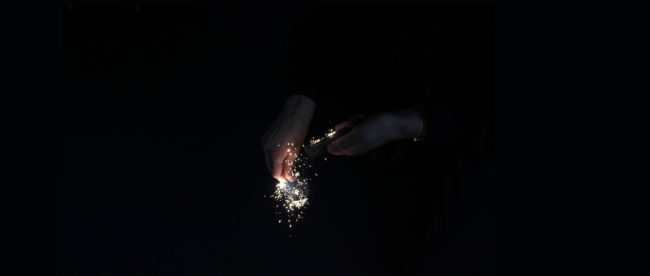Confessions of a Self-Harmer
Written by Jandy
When I was 6, I discovered that pinching myself helped my feelings go away.
At 8 years old, I got sent home from school because I stabbed myself with a mechanical pencil. It was a shallow wound; the black lead visible under the translucent dead skin.
At 10, I angrily chewed on a handful of Tylenol, hoping to upset my mother. I panicked and threw them all up within minutes. She never asked why the bathroom reeked of vomit that day.
Then came high school and the methods above did not seem to work. I was angry, depressed, anxious, and angsty. A misunderstood teenager in a confusing world; encased within her internal chaos, raging, desolate, and lonely.
Nothing felt quite as good as cutting.
The glinting blade sliding across the rupturing skin and the bright red blood trickling out; it was a dangerous sensation that was addicting, mollifying, and strangely – beautiful.
Over ten years later, I still have the scars to this day. Faded, but scorched white; a history of self-abuse recorded on my skin.
In high school, I covered my scars with two black wristbands everyday like essential pieces of a uniform and wore dark colors to match them – an iconic symptom of muted teenage rebellion. No one suspected a thing.
My mother knew and accused me of doing it for attention. To break a poor mother’s heart. To stir up trouble. Just a stupid teenager doing stupid adolescent things.
Most people, when facing someone who self-harms, cringe and draw back in revulsion. Then the judgments fly; spewing contempt, shaming, and alienating.
Not many people bother to understand why we purposefully hurt ourselves. Many people dismiss instances of self-injury as frivolous attempts to garner superficial attention.
However, it’s more complicated than that. Some people do it to alleviate emotional distress. Some do it for the temporary rush they feel in the aftermath of the action. Some do it to feel something when they feel numb.
To be honest back then, I didn’t fully understand why other kids did it. A friend had called me on a school night, timidly bragging that she cut for the first time because other girls were doing it. She used a pair of dull scissors. Another friend told me that he hated himself and that he needed to punish himself.
There were varied reasons behind the self-injuries, but they were all SOS signals for some serious intervention and rescue.
I did it because I was psychotic. Struggling with Borderline Personality Disorder, my mood fluctuations were threateningly volatile, rapidly swinging from one abnormal extreme to another, often within minutes. When I entered psychosis – when I completely lose contact with reality – I wanted nothing more than immediate release – something destructive, appalling, and painful; something that would wake me up with a sharp blow.
To me, and perhaps many others, self-injury was a flirt with death. Like toeing the edge of a cliff and staring at your inevitable demise below, then drawing back and exhaling in relief, grateful to be still here in one piece. After an episode of self-injury, I never felt more alive.
But looking back now, I wish someone had intervened.
I wish I was equipped with healthy coping skills and didn’t had to resort to hurting myself to feel better.
Because years later, I finally realized that my body – all bodies in fact – are beautiful, precious, and deserving of love and protection.
Today, I consider the self-inflicted marks on my body as my battle scars; that I have been through terrible times, that I survived, and that I moved on.
However, it hurts me to observe that self-injury is still a prevalent behavior among teenagers and people who struggle with mental illness. And in the age of social media, episodes of self-harm are displayed prominently in the corners of the internet where the vulnerable inhabit. Some self-harming posts even come with instructions. In some places, it has become a macabre competition of sorts, where the injurer tries to outdo the other.
Even worse are the unsympathetic reactions that these posts garner:
“Freaks”. “Attention whores”. “Stupid kids”. “Sad losers”.
Outrageous.
Even though we may not know the reasons behind someone’s self-harm, shouldn’t we understand that they need serious help, and take action to stop this behavior and prevent it from spreading?
Tumblr and some other social media networks are taking measures to remove and discourage content glamorizing self-injury.
We can help as well.
If you know someone who is engaging in self-injurious behavior, please let him or her know that there are better ways to cope. A wonderful organization called SAFE Alternatives works tirelessly to help and they are a phone call away (1–800–366–8288). He/she can also chat online at IM ALIVE and/or text the Crisis Text Line at 741-741, which is available 24/7 in the USA.
Self-harm is never the answer. If you are a self-harmer, please know that you are not alone and that you can get through this. We are all in this together.

